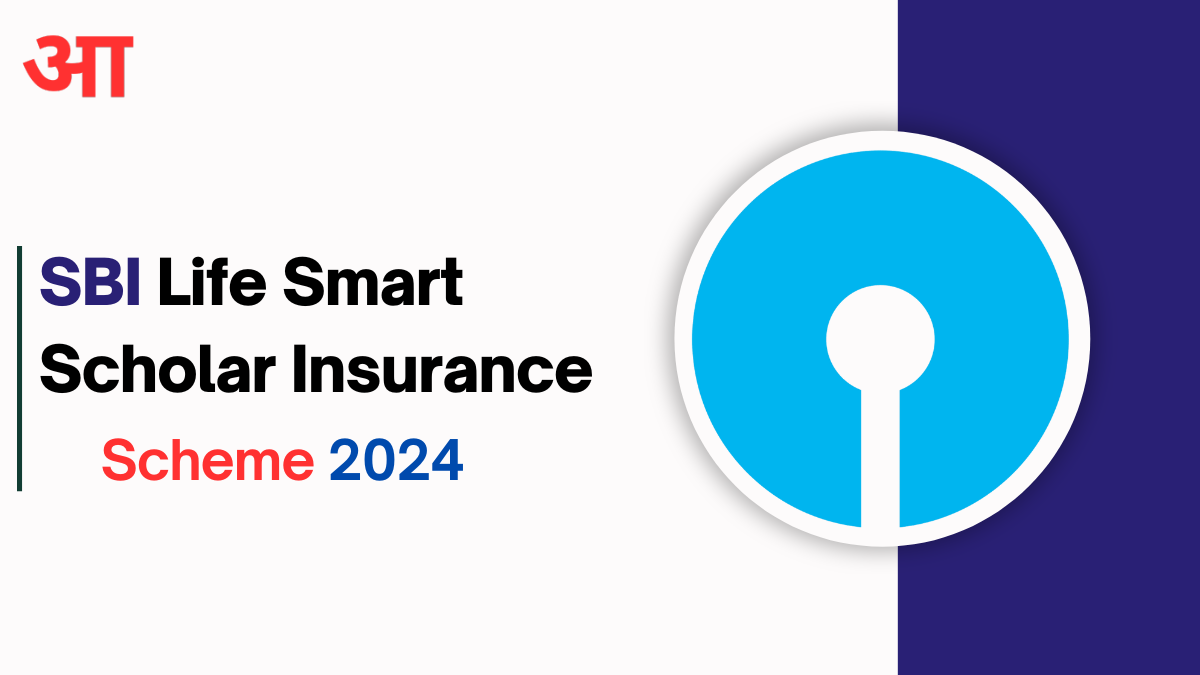The State Bank of India (SBI), a renowned banking industry entity, offers many insurance plans, including Life Insurance. Among these, the SBI Life Smart Scholar Insurance Scheme stands out. This unit-linked insurance plan (ULIP) provides life insurance coverage and a platform to save for your child’s future. Although this non-participating plan does not entitle the policyholder to the insurance company’s profits, it boasts numerous features that make it a compelling choice for parents aiming to secure their child’s future.
Contents
- SBI Life Smart Scholar Insurance Scheme 2024
- Eligibility Criteria for SBI Life Best Child ULIP Plan
- Documents required for SBI Life Best Child ULIP Scheme
- How to apply online for SBI Life Smart Scholar Insurance Scheme?
- Exclusions in the SBI Life Smart Scholar Insurance Plan
- The Functioning of the SBI Life Smart Scholar Scheme
SBI Life Smart Scholar Insurance Scheme 2024
Life Insurance Coverage:
The scheme offers up to 10 times the annualized premium throughout the policy term. This implies that if the policyholder passes away during the policy term, the beneficiary will receive a lump sum benefit equivalent to the sum assured.
Grace Period:
All premium payment methods, except the monthly mode, provide a 30-day grace period. The monthly mode offers a 15-day grace period.
Life Benefit:
If the life assured passes away, a lump sum payout equal to the higher of the sum assured or 105% of the premiums paid until death is provided. No amount is assured in the event of a child’s death. If both the child and the life assured pass away during the policy period, the policy will be terminated and all anticipated benefits, excluding the fund value, will be paid.
Maturity Benefit:
The beneficiary would receive the Fund Value available on the maturity date at maturity. They may also opt to use the Settlement Option to receive the Fund Value over five years post the maturity date. If the policyholder survives till maturity or passes away within the plan’s term, the child would be the beneficiary. In other cases, the policyholder would be the plan’s beneficiary.
Policy Termination or Surrender Benefit:
The policyholder may cancel the policy after five years. Suppose a policy is surrendered before the completion of five years. In that case, the fund value minus the discontinuation charge is credited to the Discontinued Policy Fund, where it accrues at a minimum rate of 4% per annum. The fund value in the Discontinued Policy fund as of that date will be paid to the policyholder when five years have passed. If the insurance is surrendered after 5 complete policy years, the entire Fund value on the surrender date is paid without any charges.
Free Look Period:
If you are dissatisfied with the terms and conditions, you can cancel the policy within 15 days of receiving the policy documents, provided no claim has been made.
Settlement Options:
Maturity proceeds will be paid in regular instalments within five years of maturity. In the event of the child’s death or life assured before the end of the settlement period, the fund value is paid as a lump sum to the legal heir of the life assured.
Tax Benefits:
Tax benefits are available under section 80C and 10D. If the premium exceeds 10% of the sum assured, the tax benefit will be 10%. Policy owners should consult their advisors.
Wealth Accumulation:
The plan allows you to invest your premiums in various investment funds to grow your wealth over the long term. The accumulated fund value can be used to meet your child’s financial needs for education, marriage, or any other purpose.
Flexibility:
You can choose your investment funds and premium payment terms to suit your needs. You can also make partial withdrawals from the policy after the 6th policy year to meet any unplanned expenses.
Riders:
Various riders can enhance your coverage, such as accidental death benefit riders, critical illness riders, and waiver of premium riders.
Eligibility Criteria for SBI Life Best Child ULIP Plan
This scheme is exclusively for parents who have a child aged between 0 to 18 years. The minimum age of the child should be zero years while the life assured for the parents should be more than 18. The maximum age of the children should be 17 and the life assured for parents should be 65. The maturity period of the scheme should be between the completion of 18 years to 25 years of the child.
If you apply for this scheme for five to seven years, you must pay 4500 per month. If you pay yearly, you must pay 50000 per year, or, if you prefer, you can pay 75000 at one time. The basic assurance is calculated by multiplying 1.25 by a Single premium.
Documents required for SBI Life Best Child ULIP Scheme
- KYC of both parent & child.
- Address proof
- Income statement.
- Age proof of both parent and child.
- Application form.
How to apply online for SBI Life Smart Scholar Insurance Scheme?
If you are interested in the SBI Life Smart Scholar Insurance Scheme, you can follow this procedure to apply online :-
- Visit the official website of SBI Life.
- Select the individual insurance plan by clicking on the product link on the official website.
- You can browse through all the State Bank of India’s individual insurance plans and select child plans in the filter section.
- Click on the SBI Life Smart Scholar Insurance Scheme link to learn more about it.
- Find information about the SBI Life Smart Scholar Life Insurance Scheme and give a missed call on the number on the website.
- Wait for the bank’s employees to contact you and discuss the scheme with you.
- Visit the SBI bank to apply for this scheme.
Exclusions in the SBI Life Smart Scholar Insurance Plan
- Suicide Exclusion: If the Life Assured commits suicide within 12 months from the start date of the policy or the date of revival of the policies, as applicable, the nominee or beneficiary of the policyholder is entitled to the fund value, as available on the date of death notification. Furthermore, any costs other than Fund Management Charge (FMC) collected post the date of death must be added back to the fund value available on the day the death was reported.
- Exclusion for Accident Benefit: The following incidents leading to death or total and permanent disability are not covered.
- Infection: Any infection leading to death or disability is not covered, except for infections caused by unintentional external visible wounds.
- Drug Abuse: The use of drugs or alcohol while intoxicated or under the influence of a solvent is not covered, unless it’s under the guidance of a licensed medical professional.
- Self-inflicted Injury: Intentional self-inflicted harm, including injuries sustained during a suicide attempt, is not covered.
- Criminal Acts: Participation in unlawful or criminal acts to do so is not covered.
- War and Civil Commotion: Involvement in a civil commotion such as a riot, invasion, or hostilities, whether war is declared or not, civil war, revolt, or participation in any of these is not covered.
- Nuclear Contamination: Property contamination by nuclear fuel materials, accidents involving such materials, or the radioactive, explosive, or hazardous characteristics of such materials is not covered.
- Aviation: Involvement in any flying activity other than as a passenger in an aircraft piloted by a commercially licensed pilot is not covered.
- Hazardous Sports and Pastimes: Participation in or training for any hazardous hobby, pursuit, or race that the Company has not explicitly declared and accepted is not covered.
The Functioning of the SBI Life Smart Scholar Scheme
The SBI Life Smart Scholar Scheme operates systematically and straightforwardly. Here’s a step-by-step breakdown of its workings:
Step 1: Plan Acquisition
Initially, the policyholder purchases the SBI Life Smart Scholar Scheme. At this stage, the policyholder also designates a beneficiary for the policy, typically the child whose future they wish to secure.
Step 2: Regular Premium Payments
Following the policy’s acquisition, the policyholder must make regular premium payments. These payments are subsequently invested in market-linked funds, providing the potential for financial growth.
Step 3: Beneficiary’s Eligibility for Fund Value
The policy beneficiary, usually the children, becomes eligible to receive the fund value upon the maturity of the policy or in the unfortunate event of the policyholder’s death. This ensures that the child’s future remains financially secure, regardless of circumstances.
Click the link to know more.

Mahesh Sen, a seasoned student advisor, writes informative articles on educational topics. Mahesh gives valuable insights and practical advice to guide students through their academic challenges and milestones.
